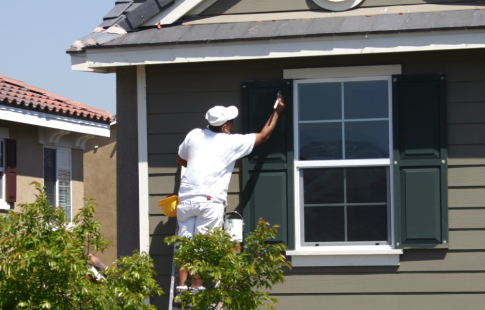Estimated reading time: 3 minutes
Understanding how to estimate your home’s value can come in handy. It plays a part in determining everything from your home equity and insurance premiums to annual property taxes. When you’re ready to buy or sell a home, it can also help you settle on a good price. Here are 4 methods you can use to determine your home’s value.
Note: The following tools are subjective and should be used only to give estimates of a home’s value. They do not reflect the appraised value of your home, which can only be determined by a professional appraiser.
Top Takeaways
Obtain a comparative market analysis (CMA)
If you’ve ever sold a home, you’ve probably seen a comparative market analysis (CMA) before. Real estate agents usually conduct them before listing a home for sale to determine its value. These reports provide an estimated value of your home based on the agent’s evaluation and comparable properties or “comps.” To develop the CMA, real estate agents measure your home against similar properties’ recent list and sale prices in the multiple listing service (MLS). A comparable home is generally one that has a similar:
- Number of bedrooms and bathrooms
- Number of square feet
- Lot size
- Age
- Condition
- Features
- Location, typically in the same or a nearby neighborhood
Evaluate comparable properties
Interested in trying your hand at determining your home’s value? Browse websites that include MLS listings to find recent sale prices for homes that are comparable to yours. Once you have found a few comparable properties, calculate the average sale price, and that is the estimated value of your home.
Try free home value estimators online
Many of the first results you’ll see when searching for “how to determine your home value” are links to online Automated Valuation Models (AVMs). These calculators use information such as addresses, square footage, public records, and comparable home sales to estimate the value of your home. Many lenders also use AVMs before a formal appraisal is done.
Although this is a fast way to estimate your home’s value, AVMs have their pros and cons. AVMs tend to work best in places that have an abundance of current local market data to compare your home to.
Among their limits, “AVMs assume all properties are in similar average conditions,” explains Cotality, a data insights company. This means your home’s upgrades or damages won’t be reflected in the estimate. Rural properties’ estimates also “tend to be less accurate” if there are fewer home sales to compare.
Hire an appraiser
There is nothing more accurate to determine your home value than a professional appraisal. This method of home valuation is used by lenders to estimate home value and is required to obtain a mortgage. Estimates vary on the cost, but you may need to budget anywhere from $300–$600 to start.
If you’re ready to begin a homebuying or selling journey, get in touch with one of our mortgage experts.



